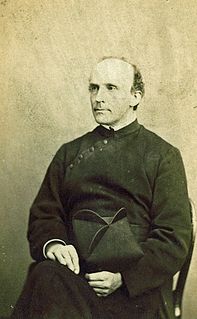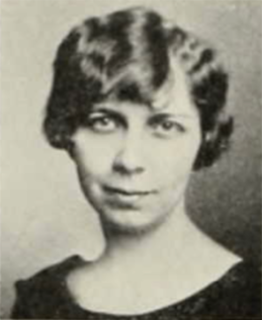Chinese surnames are used by Han Chinese and Sinicized ethnic groups in China, Taiwan, Korea, Vietnam and among overseas Chinese communities around the world. Chinese surnames are given first for names written in Chinese, which is the opposite of Western naming convention where surnames come last. Around 2,000 Han Chinese surnames are currently in use, but the great proportion of Han Chinese people use only a relatively small number of these surnames; 19 surnames are used by around half of the Han Chinese people, while 100 surnames are used by around 87% of the population. A report in 2019 gives the most common Chinese surnames as Wang and Li, each shared by over 100 million people in China, with Zhang, Liu, Chen, Yang, Huang, Zhao, Wu and Zhou making up the rest of the ten most common Chinese names.
When a person assumes the family name of their spouse, that name replaces the person's previous surname, which in the case of the wife is called the maiden name, whereas a married name is a family name or surname adopted by a person upon marriage. In Scotland it is legal and not unusual for a woman to retain her maiden name after marriage. In point of fact if a woman's family was more 'influential' than the groom then he sometimes took his bride's family name.
A surname, family name, or last name is the portion of a personal name that indicates a person's family. Depending on the culture, all members of a family unit may have identical surnames or there may be variations based on the cultural rules.

In the Southwestern United States, the term Pueblo refers to communities of Native Americans, both in the present and in ancient times. The Spanish Conquistadors of northern New Spain used this term to describe the communities housed in apartment structures built of stone, adobe mud, and other local material. These structures were usually multi-storied buildings surrounding an open plaza. The rooms were accessible only through ladders lowered by the inhabitants, thus protecting them from break-ins and unwanted guests. Larger pueblos were occupied by hundreds to thousands of Puebloan people. Various federally recognized tribes have traditionally resided in pueblos of such design.
Spanish naming customs are historical traditions for naming children practised in Spain. According to these customs, a person's name consists of a given name followed by two surnames. Historically, the first surname was the father's first surname, and the second the mother's first surname. In recent years, the order of the surnames in a family is decided when registering the first child, but the traditional order is still largely the choice. Often, the practice is to use one given name and the first surname most of the time, the complete name being typically reserved for legal, formal, and documentary matters; however, both surnames are sometimes systematically used when the first surname is very common to get a more customized name. In these cases, it is even common to use only the second surname, as in "Lorca", "Picasso" or "Zapatero". This does not affect alphabetization: discussions of "Lorca", the Spanish poet, must be alphabetized in an index under "García Lorca" and not "Lorca".
In the Western tradition of surnames, there are several types of double surname. If the two names are joined with a hyphen, it may also be called a hyphenated surname.
In the Philippines, varying naming customs are observed. The most common iteration amongst Filipinos is a blend of the older Spanish system and Anglo-American conventions, where there is a distinction between the "Christian name" from "surname". The construct of having several middle names is common to all systems, but to have multiple "first" names and only one middle and last name is a result of the blending of American and Spanish naming customs. The Tagalog language is one of the few national languages in Asia to use the Western name order while formally using the eastern name order. Thus, the Philippine naming custom is coincidentally identical to the Spanish and Portuguese name customs and to an extent Chinese naming customs.
Indian names are based on a variety of systems and naming conventions, which vary from region to region. Names are also influenced by religion and caste and may come from epics. India's population speaks a wide variety of languages and nearly every major religion in the world has a following in India. This variety makes for subtle, often confusing, differences in names and naming styles. Due to historical Indian cultural influences, several names across South and Southeast Asia are influenced or adaptations of Indian names or words.

The Missionary Society of Saint Paul the Apostle, better known as the Paulist Fathers, is a Roman Catholic society of apostolic life for men founded in New York City in 1858 by Servant of God Isaac Thomas Hecker in collaboration with George Deshon, Augustine Hewit, and Francis A. Baker. Members of the society are called Paulists, and identify themselves as such by the use of the initials C.S.P. after their names, for the Congregation of St. Paul. The Society's mission is to evangelize—preach the gospel or give information with the intention of converting people to Catholicism—the people of North America in a manner suited to the continent's culture.

Francis Asbury Baker was an American Catholic priest, missionary, and social worker, known as one of the founders of the Paulist Fathers in 1858.

The A1031 is a major secondary route in Lincolnshire that runs most of the North East coast of the county. It is 24.75 miles. It runs from Cleethorpes at Love Lane Corner Roundabout with the A46 road and ends at the A1104 road at Mablethorpe.

Augustine Francis Hewit was an American Redemptorist priest, and second Superior General of the Paulist Fathers.

The Ute Indian Museum is a local history museum in Montrose, Colorado, United States. It is administered by History Colorado.
Daniel F. "Dan" Cocoziello is a lacrosse defenseman who plays professional field lacrosse in the Major League Lacrosse (MLL). He starred as a member of the Princeton Tigers men's lacrosse team from 2005 through 2008 where he started every game. He is the only defenseman to have earned the Men's Ivy League Rookie of the Year. He was a three-time United States Intercollegiate Lacrosse Association (USILA) All-American and three-time All-Ivy League selection. During his college career, Princeton earned an Ivy League championship and two NCAA Men's Lacrosse Championship invitations. In high school, he won three state lacrosse championships.
Alexander G. Hewit is a retired lacrosse goaltender. He led his high school to three New Jersey state championships and was one of the most sought after high school lacrosse players in the United States. He starred as a member of the Princeton Tigers men's lacrosse team from 2005 through 2008. He was recognized as a three-time United States Intercollegiate Lacrosse Association (USILA) All-American and a three-time second team All-Ivy League performer. He was the 2006 National Collegiate Athletic Association (NCAA) goaltender of the year and 2008 Princeton co-captain. During his college career, Princeton lacrosse earned an Ivy League championship and two NCAA Division I Men's Lacrosse Championship invitations.
Hewitt is both a surname and a given name. The Name Hewitt Originates from England but the Hewitts later migrate to Ireland, The USA, Australia and New Zealand
Nathaniel Hewit was an American clergyman.
Gordon Hewit was a British swimmer. He competed in the men's 200 metre butterfly at the 1976 Summer Olympics.

Mabel Hewit (1903–1984) was an American woodblock print artist, particularly the white-line style of the Provincetown Printers.






